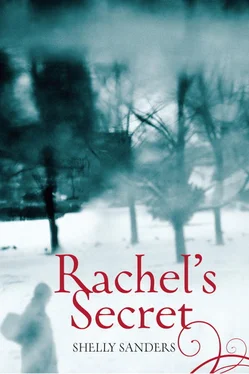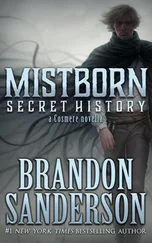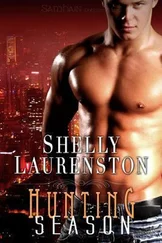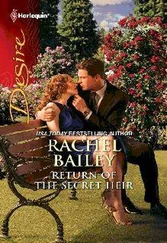“I’ve already been there. Nobody’s seen him all day.” Sergei saw the two men exchange glances. “I know he’s drinking somewhere. But there are a lot of taverns in town.”
“Try the Moscow,” the first officer replied. “If he’s not there, try the Bear. Yes—that’s what I’d do.”
Sergei nodded in reply and headed down the street, anger churning his stomach. “Why does my father have to make such a fool of himself?” he muttered, his fists clenched.
Lights from the taverns, gambling dens, and restaurants glowed hazily as Sergei walked past open doors. The smell of alcohol and smoke assaulted his nose. Taking a deep breath, he entered the Moscow and found himself in the reddest room he’d ever seen. Lit sconces against crimson walls infused the floor with a ruby tinge. Thick red stripes ran along the edges of the tablecloths.
Tables of six were filled with men talking and laughing loudly over their drinks. A large archway led to another room, where the atmosphere was more subdued. At one table, the men were passed out, their heads on the table.
Tucked back in the darkest corner, he saw his father hunched over a table with men Sergei didn’t recognize. A gray cloud of smoke hovered above their heads.
“Papa…” Sergei glared at his father as he approached. “Papa!” he repeated in a louder voice.
Sergei’s father raised his head and tried to focus his eyes on the source of the voice. “What…what the devil’re you doing here?” His voice slurred.
“Mama is worried about you. She sent me to find you,” Sergei replied tersely.
The other men peered at Sergei, their drunken eyes mere slits in their ruddy faces.
“Oh, for goodness sake. Can’t a man have some time to himself?” Sergei’s father grinned, raised his glass and proposed a toast. “Here’s to…time with friends!”
He and the other men roared with laughter, and reached for their glasses.
“Are you coming home or not?” Sergei asked.
“When I’m good and ready.”
“Hear, hear!” yelled one of his cronies. The three men clanged their glasses together in a toast. Sergei noticed his father’s hand shake as he held his glass. Scowling, Sergei turned and left, sighing with relief when he was back outside. He savored the cool, clean air, but couldn’t rid his mind of his father’s drunken condition. He glanced back at the tavern, then walked toward lower Kishinev, with thoughts of Rachel crowding out the ugly images of his father.
Under the cloak of darkness, it was easy to forget about the massacre. Desecrated buildings were blotted out, hidden, unseen. The gaslights shining brightly in the night made the town appear picturesque, almost holy. Looming in front of him was the Jewish hospital. The stark building rose from the ground like a shadow.
“Sergei?”
Sergei turned and saw Rachel standing under a gaslight, her face partially concealed in the night’s shadows.
“I couldn’t sleep,” she said. “When I closed my eyes, I saw… anyway, the lights shone through my window. At night I can pretend Kishinev is the same as it was. That it wasn’t destroyed.”
“I was thinking the same thing. But you shouldn’t be out here alone. You could get hurt.”
“I’m not afraid. Besides, I’m only a few steps from the hospital.” She spoke matter-of-factly, with no emotion. “Have you seen Menahem since he was sent to the orphanage?”
“A couple of times. He’s miserable. He spends most of his time doing chores, and there are fights. When I leave I feel terrible.”
Rachel nodded. “When I’m sad about losing my father, I think of Menahem and how much worse off he is. I feel bad for feeling sorry for myself when I know there are so many children like him out there.”
“I wish I could do more for him.” Despair and anger flooded through Sergei. “I lie awake at night trying to make sense of everything.” He grimaced and his voice rose. “Yet my father, who could have stopped the riots but didn’t, sits in a tavern as we speak,drinking himself into a stupor as if nothing happened.”
“It doesn’t pay to be good.”
“You’re right.”
“I should get back now, before my mother notices I’m gone.” She waved and moved out of the light.
“Wait! Let me walk with you,” Sergei called.
“It’s all right,” Rachel replied. “I’ll be fine.”
Sergei kept an eye on her until she disappeared into the misty night. After one last glance at the hospital, he went home.
A group of children hovered near Sergei as he stood in the entry hall of the orphanage with Menahem. Like Menahem, they all had sad eyes and protruding cheekbones. Although Sergei knew there were lots of children in the orphanage, actually seeing their faces made him feel guilty for befriending just one.
“I guess we should go, Menahem.” Sergei turned his head to the door to avoid the children’s hopeful gazes and left with Menahem clinging tightly to his hand. “Does anybody ever come to visit those other children?” Sergei asked as they headed to Chuflinskii Square. “Were they all orphaned after the riots?”
Menahem put his finger to his lip as he pondered this question. “I don’t know.”
Sergei’s eyes searched Menahem’s face to make sure he wasn’t upset talking about the massacre.
“Sometimes at night, I hear them cry out for their mothers and fathers.”
“What about you?” asked Sergei. “Are things getting better now?”
“I still miss my grandmother. She used to make special latkes for me, even if it wasn’t Hanukkah, and every night she told me a story before I went to sleep. She couldn’t read but she had all kinds of stories in her head.” Menahem’s voice grew faint.
They arrived at the square, but Sergei wanted to keep talking. Holding Menahem’s hand, he guided him to the walkway around the perimeter of the square. “You’ve never told me what happened to your parents.”
“They died when I was a baby. It was a fever that killed a lot of people. My grandmother’s always taken care of me.”
“Sergei!” Petya ran up to them from across the square. “Sergei… we’re getting teams together for a game of gorodki . We’re one short. Come and join us.”
“Sorry, I can’t. I’m with… I’m with my friend Menahem.”
Petya spied Menahem hiding behind Sergei’s back. “He can come too. The two of you can share the spot.”
“I don’t know how to play,” Menahem said quietly.
“I can teach you, Menahem. It’s a great game,” said Sergei, thinking this would take Menahem’s mind off his troubles.
“You throw a wooden baton at a town made up of towers of blocks,” added Petya. “If you knock them down, you win.”
Menahem backed away from them with round, frightened eyes.
“Oh no!” Sergei said, hitting his forehead as he realized what he’d done. “I can’t believe we just asked him to play gorodki.”
“What do you mean? What’s wrong with gorodki?” asked Petya.
“Menahem’s home was destroyed in the massacre here. By us.”
“Wait a minute… I didn’t destroy anybody’s house,” said Petya.
“We didn’t exactly try to stop people either. And then what do we do? Ask him to play a game where we destroy a town.” Sergei saw Menahem running back the way they’d come and started to chase him, overtaking him on the sidewalk. “Menahem, wait! I’m sorry. We were idiots. We weren’t thinking. I’ll make it up to you. I promise.”
Menahem’s face was streaked with dirty tears, which he tried to erase with the back of his hand. He was breathing heavily.
“Please. I made a mistake. I’m sorry.”
“You’re just like the rest of them,” said Menahem.
“No, no, I’m not. I really hate the people who destroyed your house and the rest of the town. And I really like you. I come to visit you because I want to, not because I have to. You know that, don’t you?” Sergei knelt down and took Menahem’s hands.
Читать дальше












